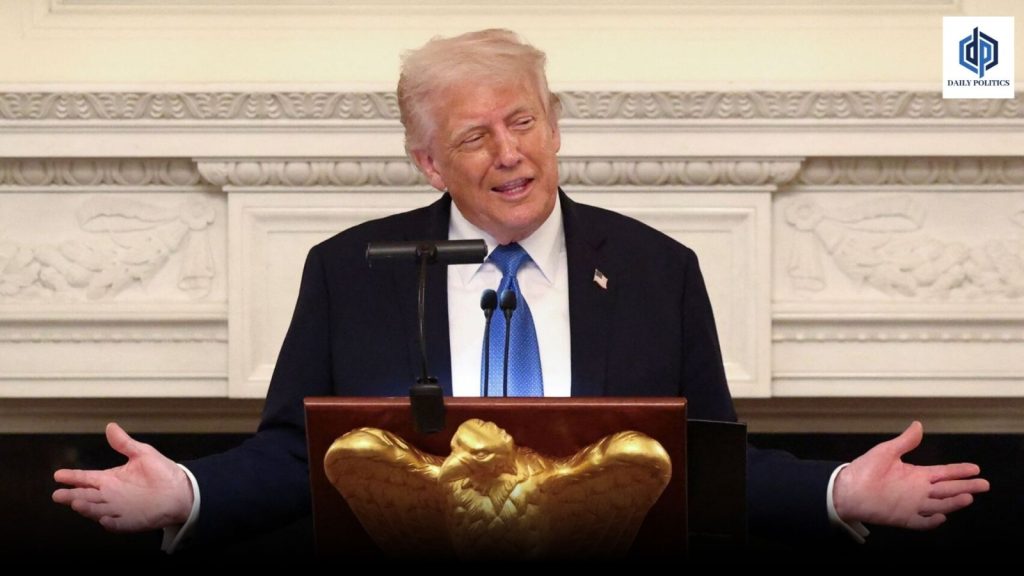In a narrow decision, the House voted 215-214 early Thursday morning, successfully passing President Donald Trump’s extensive tax and spending cuts package. This marks a significant achievement for both the president and Speaker Mike Johnson, following efforts by GOP leaders to persuade crucial holdouts.
The legislation faces significant hurdles. It is set to move to the Senate, where Republican members have indicated intentions to implement their own modifications.
The effort to advance the bill in the House represented a significant challenge to Trump and Johnson’s influence. Republican leaders were deeply involved in negotiations concerning the bill, while Trump fervently urged House Republicans to support the initiative, aiming to facilitate its passage.
In a notable development, Republican Representatives Thomas Massie from Kentucky and Warren Davidson from Ohio cast their votes against the bill. Meanwhile, House Freedom Caucus Chairman Andy Harris of Maryland opted to vote present.
GOP leaders find themselves navigating a complex landscape, balancing the contrasting demands of conservative hardliners and centrist members within their ranks. This intricate balancing act is particularly crucial for Speaker Johnson, who can only tolerate a limited number of defections given his narrow majority.
The legislative package proposes significant reductions to two vital safety net programs—Medicaid and food stamps—while also permanently extending nearly all of the trillions of dollars in individual income tax breaks established by the GOP’s 2017 Tax Cuts and Jobs Act.
On Wednesday evening, House Republicans presented a series of modifications to the bill aimed at persuading dissenting members of their party. The modifications involved accelerating the implementation of work requirements for Medicaid, moving the deadline from the beginning of 2029 to the end of 2026. Republicans have opted to expedite the phase-out of energy tax credits established during the Biden administration alongside various other measures.
Republican leaders prepare for a crucial vote following the president’s appeal to undecided members.
House Republican leaders pressed forward with a vote on President Trump’s agenda following his private appeals to crucial dissenters, urging them not to obstruct the proposed tax and spending cuts package.
In a critical moment for Speaker Johnson, the president convened members of a significant faction within the Republican Party at the White House. Tensions were high as six conservatives expressed their intention to oppose their party leadership over desired spending cuts in the proposed legislation.
As of Wednesday evening, Johnson and his leadership team seemed assured that Trump’s involvement had played a crucial role in steering the bill back on course. Just one day earlier, Trump delivered an impassioned appeal in a fervent address to the entire House GOP conference.
On Tuesday, Trump issued a strong call to House Republicans, urging them to rally in support of his extensive domestic policy legislation. The president delivered a forceful 90-minute address to House Republicans, oscillating between pressuring his colleagues and offering them encouragement. This approach, as reported by several GOP lawmakers and senior aides, has moved Johnson and his leadership team significantly closer to advancing the bill.
The recently introduced legislation, referred to by Republicans as the “One Big Beautiful Bill Act,” seeks to address numerous commitments made by Trump during his campaign, encompassing a diverse array of policy matters.
In anticipation of a crucial final floor vote, House Republicans unveiled a revised package of changes to the bill, a culmination of days of negotiations among GOP leaders aimed at securing the support of dissenting members.
The recent package of changes not only addresses Medicaid work requirements and Biden-era energy tax credits but also formalises one of Johnson’s most significant agreements this week: the SALT cap. The proposal would enable individuals to deduct state and local income taxes, with a cap of $40,000, for specific income brackets.
Initially, GOP leaders suggested a cap of $30,000; however, prominent Republicans from New York, New Jersey, and California declined to back the proposal.
Before the announcement of the changes, Johnson was actively involved in discussions with different groups to secure an agreement that would satisfy both GOP hardliners, who had expressed intentions to obstruct the tax and spending cuts bill, and centrist members, who had expressed concerns regarding specific proposed alterations from the right-wing.
Shortly after midnight on Thursday, Speaker Johnson expressed optimism regarding the bill’s prospects for passage in the House, even in the face of obstacles.
“The outcome remains uncertain until the final vote count is revealed, but I firmly believe we will successfully pass this bill tonight,” he stated. “This legislation is substantial and encompasses numerous components.” The outcome remains to be seen. There is a strong belief that the task at hand will be completed by Memorial Day, aligning with initial predictions made at the outset.














